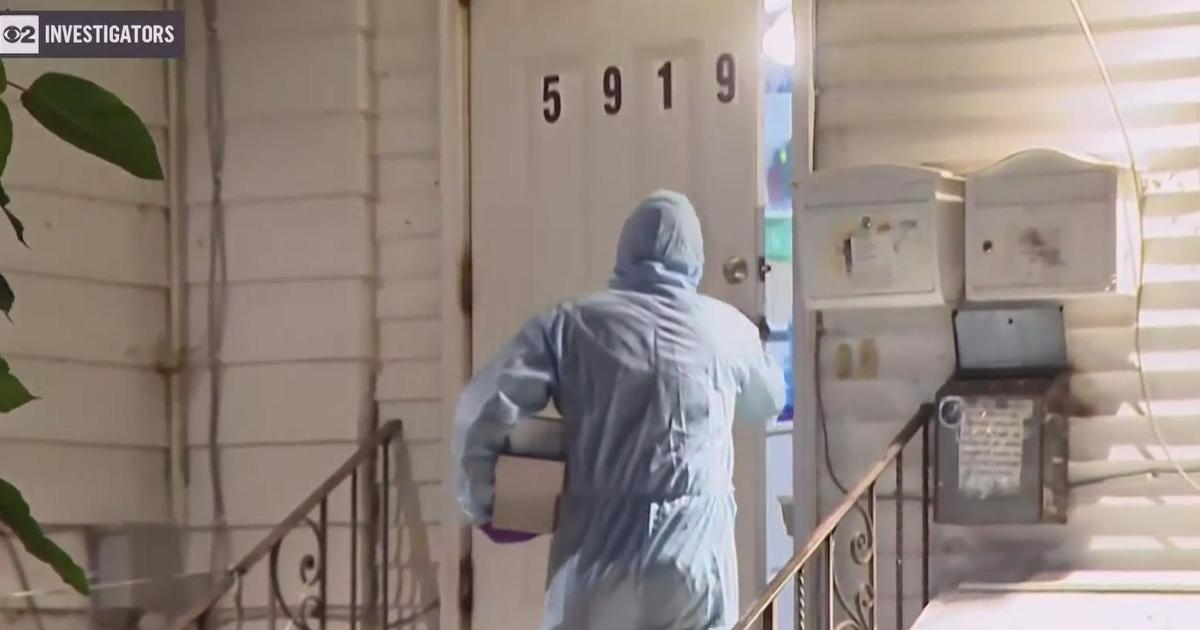2 Investigators: Boy Almost Dies After Prescription Misfilled
(CBS) -- More than 1.3 million people are injured every year from medication errors according to FDA estimates.
Some pharmacy errors have been deadly and as CBS 2 Investigative Reporter Pam Zekman found out, regulatory oversight of pharmacy errors here in Illinois has been hampered by a court decision and legislative failures.
The most typical pharmacy errors include patients who get the wrong drug, dosage or instructions even someone else's medication.
"What a blunder this is," says Robin Ahmed, whose then five-year-old son Ali Ahmed was given an adult Ali Ahmed's Haloperidol, an antipsychotic instead of his allergy medication.
After the child had two doses, Robin Ahmed says, "He can't breathe, he can't talk."
"They told me if you would have given him one more dose you could have lost your son," said Ali's mother, Eda.
Now they're suing Walgreens for negligence.
"If they would have looked at the dosage they would have seen that a child was receiving ten times the recommended dosage," said Matt LaSusa, the Ahmeds' attorney. "They simply misfilled a prescription intended for somebody else."
A Warrenville Walgreens apparently misfilled a prescription for 15-year-old Kenya Reyes. Instead of getting an antibiotic, she got Olanzapine, used to treat schizophrenia.
"My heart started racing so fast and I just had blurred vision and I was getting so scared," Kenya Reyes said.
"It breaks my heart because I was so afraid that she was gonna die that day," said Elva Reyes, her mother.
We know of two wrongful death lawsuits that have cost Walgreens $57 million. Two more were settled for a confidential amount.
How common are pharmacy errors? A national study of 50 pharmacies revealed a 1.7 percent error rate.
"There's four billion prescriptions dispensed in the United States per year. Even one percent of that is 40 million errors every year in retail pharmacies," said Northwestern University's Bruce Lambert, who has studied medication errors in the past.
There are no accurate statistics on the number of medication errors in Illinois because the state does not require retail pharmacies to report them as 15 other states do.
And there are other ways in which pharmacy regulation is weak. Under national law, pharmacy companies can keep their mistakes confidential if they set up internal review systems and in Illinois, they can ignore state subpoenas for error reports thanks to a court case won by Walgreens.
Carmen Catizone, Executive Director of the National Association of Boards of Pharmacy, says, "The information is not available and without that information, there's no way to protect consumers."
"That's frightening isn't it from a patient protection point of view," asks Pam Zekman.
"As a patient, as a regulator it's very concerning to us," Catizone says.
Robin Ahmed says, "What bugs me: this could happen to anybody in the future. Other kids."
The newly appointed head of the Department of Professional Regulation is a former attorney for Walgreens and declined an on camera interview. A spokesman says patient safety is the agency's number one priority. He says DPR would support legislation that would require mandatory report of prescription errors and ease the effect of that Illinois court decision which impedes their efforts and "arguably compromises patient safety."
Since 2010 records show DPR has disciplined seven pharmacists and one pharmacy for medication dispensing errors.
A Walgreens spokesman declined to answer our questions about these cases but said it has safety checks in place to reduce the chance of human error. "Quality, safety and accuracy are our top priorities," he said.
Walgreens submitted a written statement to CBS 2 saying, "In the event of a prescription error, our first concern is always for the patient. Any such incident is reported to the Patient Safety Research Foundation, Inc. – one of 84 PSOs listed by the federal government, in accordance with our Continuous Quality Improvement Process.
The Patient Safety and Quality Improvement Act of 2005 (Patient Safety Act) authorized the creation of Patient Safety Organizations (PSOs) to help reduce the incidence of events that adversely affect patients. PSOs are designed to improve the quality and safety of the U.S. healthcare system by encouraging clinicians and healthcare providers to voluntarily report and share data on patient safety events without fear of legal discovery. For decades, Illinois has recognized a similar peer review privilege for hospitals and physicians under the Illinois Medical Studies Act.
Additionally, we have a multi-step prescription filling process with a number of safety checks in each step to reduce the chance of human error. Quality, safety and accuracy are our top priorities, and we make it clear to our pharmacists that we do not want them to work beyond what they believe is safe, in their professional judgment."



